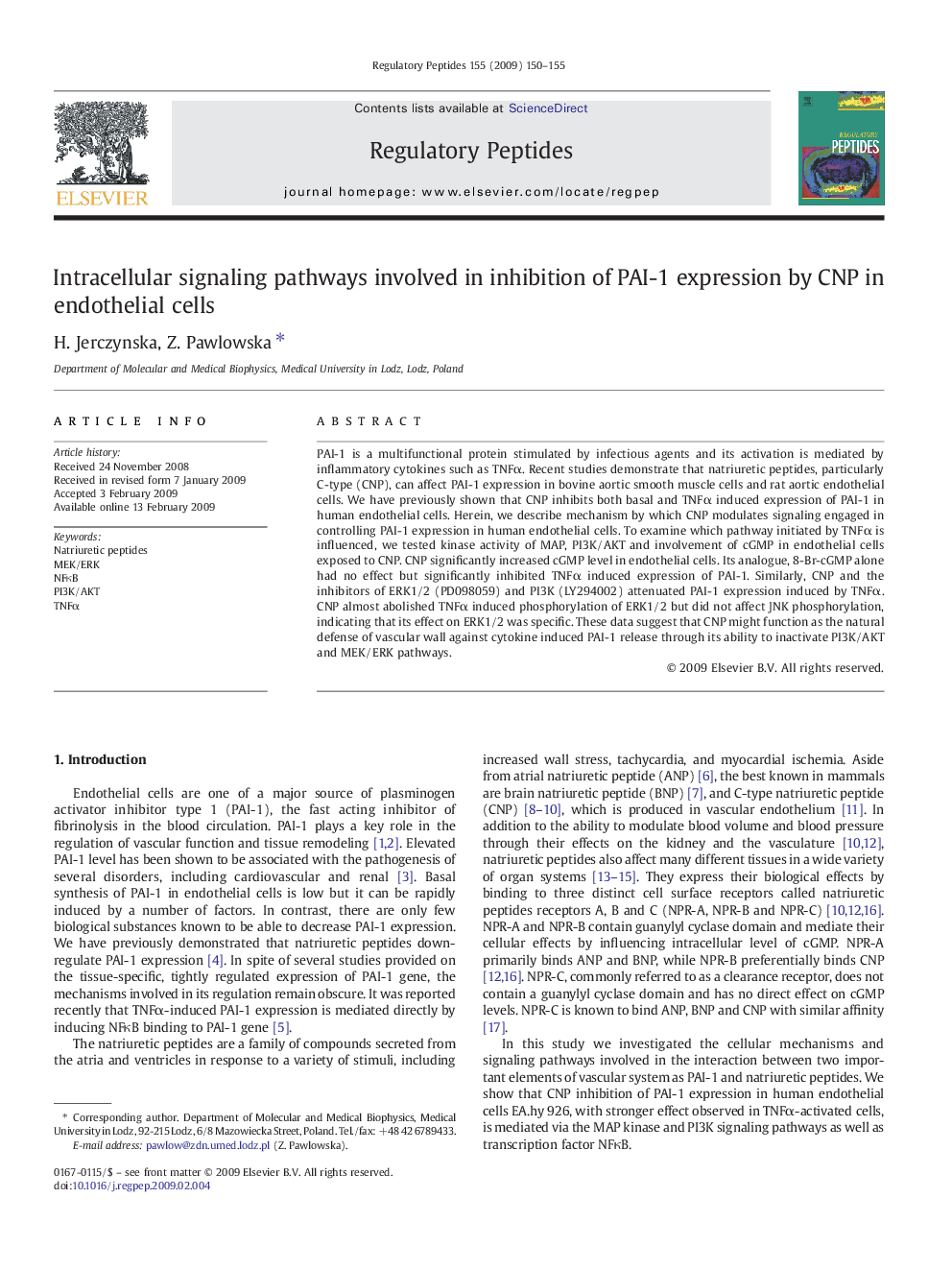| Article ID | Journal | Published Year | Pages | File Type |
|---|---|---|---|---|
| 2023104 | Regulatory Peptides | 2009 | 6 Pages |
Abstract
PAI-1 is a multifunctional protein stimulated by infectious agents and its activation is mediated by inflammatory cytokines such as TNFα. Recent studies demonstrate that natriuretic peptides, particularly C-type (CNP), can affect PAI-1 expression in bovine aortic smooth muscle cells and rat aortic endothelial cells. We have previously shown that CNP inhibits both basal and TNFα induced expression of PAI-1 in human endothelial cells. Herein, we describe mechanism by which CNP modulates signaling engaged in controlling PAI-1 expression in human endothelial cells. To examine which pathway initiated by TNFα is influenced, we tested kinase activity of MAP, PI3K/AKT and involvement of cGMP in endothelial cells exposed to CNP. CNP significantly increased cGMP level in endothelial cells. Its analogue, 8-Br-cGMP alone had no effect but significantly inhibited TNFα induced expression of PAI-1. Similarly, CNP and the inhibitors of ERK1/2 (PD098059) and PI3K (LY294002) attenuated PAI-1 expression induced by TNFα. CNP almost abolished TNFα induced phosphorylation of ERK1/2 but did not affect JNK phosphorylation, indicating that its effect on ERK1/2 was specific. These data suggest that CNP might function as the natural defense of vascular wall against cytokine induced PAI-1 release through its ability to inactivate PI3K/AKT and MEK/ERK pathways.
Related Topics
Life Sciences
Biochemistry, Genetics and Molecular Biology
Biochemistry
Authors
H. Jerczynska, Z. Pawlowska,
